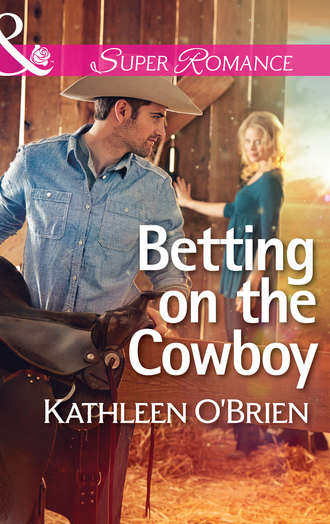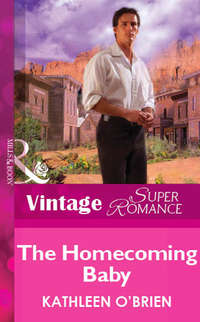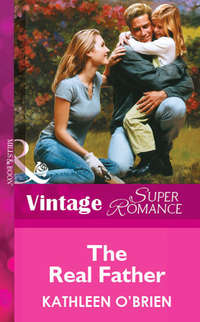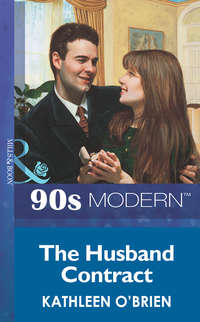
Полная версия
Betting on the Cowboy
“Yeah, deep-fried Charlie sounds just fine.” She let her eyes drift shut. “You know, Pea, maybe you should have been a psychiatrist.”
It was a musing, slightly slurred non sequitur that probably proved she had moved beyond tired all the way to incoherent. A thought struck her. She hadn’t meant to discount Penny’s art. “And an artist, too. I mean instead of being just an artist. Obviously you had to be an artist.”
Penny chuckled. “You won’t think so when you see this picture.”
Bree opened her eyes, though she knew nothing in the sketch could change her mind about her sister’s talent. Whatever Penny turned her hand to, whether it was oils, pen-and-ink sketches, photography or interior decorating, she ended up creating beauty.
Take this simple, cream-colored room, for instance. The rest of Ruth’s house was crowded, lacy, oppressively Victorian. But up here, Penny had designed a cool, clean haven from all that. Without any cliché Western decor—no antlered light fixtures, no river-rock mantels, no bucking-horse sculptures—she managed to capture the essence of their beautiful childhood Colorado home, Bell River Ranch.
How did she do it? More magic, really. The one gorgeous piece of peach-and-turquoise pottery that always made Bree think of a spring sunset. One painting, a sunlit stand of birch trees that could have been trite, but instead was pure poetry. A love seat upholstered in muted silvers, blues and pinks, like the shimmering pebbles in the shallows of Bell River.
“I love this room,” she said, another non sequitur. She laughed at herself, realizing she sounded a little drunk, although they’d been sipping nothing but almond-honey tea all night. She climbed up on her knees and peered over the arm of the sofa. “Okay, let me see the picture. If it’s awful, though, it’s not your fault. Too bad I don’t have Ro’s problem and get skinny when I’m upset. I bet from that angle my rear end looks huge.”
Penny held out the crisp, thick paper with a smile. “Lucky for you I never got to the rear-end part. I spent the whole time trying to get your face right.”
Bree was curious now—and maybe, if she was honest, a little embarrassed. She knew she didn’t look her best. She might not have Rowena’s problem, but when she wasn’t happy her face could look very drawn and hard. She felt hard, since Charlie, and she dreaded seeing that reflected through Penny’s eyes.
But when she summoned the courage to look at the paper, the face she saw there didn’t look tough at all. In fact, Penny’s version of Bree oozed vulnerability. Her blond hair was tousled, and her T-shirt had slid down one shoulder. Her cheekbones were pronounced and graceful, but shadows underscored her abnormally large blue eyes.
She looked wounded, and slightly bewildered, as if she were a child who couldn’t understand why anyone would have wanted to hurt her.
She let her hand lower the sketch to her hip. She stared at her sister, frowning. “Is that how I really look?”
Penny raised one shoulder. “Well, you’re more beautiful than that,” she said. “I’m not good enough to do you justice.”
Bree shook her head. “Don’t be silly, Pea.”
Compliments like that made Bree feel like some kind of criminal fraud. Penny always saw the world through the prism of her own inner sweetness—which was a great beautifier. But right now...
If Bree had really been such a beauty, would her fiancé have been so eager to sleep with a forty-five-year-old married woman made almost entirely of nips and tucks?
Bree held out the sketch so that Penny could see it again. “I mean, do I look this...weak?”
Penny bent forward and studied her drawing with a small frown of concentration. Bree appreciated that she didn’t pretend to misunderstand.
“You look very sad,” Penny said finally. She glanced up, her brown eyes warm, and smiled to soften the pronouncement. “Which is why we really must toss the bum in boiling oil, first chance we get.”
Bree had a horrifying sensation of stinging heat just under her eyelids, and she knew that, if she weren’t very, very careful, she could actually end up crying.
Which was unacceptable. “Smile, Brianna,” Kitty’s voice in her head repeated, as always. “No one likes a sad sack.”
“What if it isn’t actually Charlie’s fault?” She forced herself to meet Penny’s eyes. “He says...he says I drove him to it. He says I’m always so critical, so hard to please. He says if I had ever really been the kind of fiancée who helped and supported his decisions—”
Penny snorted delicately. “Oh, for heaven’s sake, Bree. Listen to yourself! You’re going to believe that lying scumbag? That’s the classic technique for abusive boyfriends, you know. Shifting the blame to you, hoping you’ll think it’s all somehow your fault.”
Penny was right, of course. It was the abuser’s easy out...you made me do it. But Charlie hadn’t just been trying to weasel free of the blame. He didn’t say those things until he knew the relationship was truly over and he couldn’t ever win her back. Problem was, she could hear in his voice, and see in his face, that he meant it. Really meant it.
It was hard to even think back on the contempt in Charlie’s voice as he’d hurled those accusations at her. Harder still, because, deep down inside, she had heard the ring of truth.
“I am critical, Pea. You know it’s true. I don’t know why, but I always seem to be pointing out everyone’s mistakes. Especially Charlie’s.”
Penny was shaking her head. “I don’t care if you whipped him with his own belt, mocked his manhood and made him sleep in the root cellar. You still didn’t make him cheat. You didn’t make him steal. You didn’t make him destroy Breelie’s. Someone ought to introduce Charlie Newmark to the idea of personal responsibility.”
Bree was grateful for the vehemence in Penny’s voice, and the loyalty that caused it. But she didn’t want to sweep this under the carpet. If she didn’t acknowledge her failings, how was she ever going to change anything? If she couldn’t get better, she would never be able to put together a relationship that would last.
She didn’t want to be alone forever.
“But it’s not just Charlie, is it? Every boyfriend I’ve ever had has said something similar.” She flushed as an old, half-forgotten memory came flooding miserably back. The day the sexiest rebel in her ninth-grade class, the boy she’d secretly had a crush on for months, had humiliated her in front of everyone. Wild Gray Harper...he had thought she was cold, prissy and boring...even way back then.
Penny looked at her oddly, and if Bree didn’t want to explain that sad old story, she had to recover quickly. “And Rowena,” she added. “Charlie might have taken the words right out of her mouth. And Kitty, too—though she sugar-coated it most of the time.”
“Kitty was a cross between Pollyanna and a Stepford wife.” Penny laughed again, but more softly, as if out of respect for Bree’s obvious distress. “She thought it was a sin for a lady to frown, or express a single authentic feeling, or do anything but coddle and flatter the men in her life. I don’t know how you stood it all those years.”
“She did her best,” Bree said loyally. “She wasn’t even related to us, you know. She didn’t have to take me in.”
“I know.” Penny’s laughter faded away. “That was a dumb thing to say. I’m sorry.”
They were silent a moment, remembering, though it was like remembering a nightmare they’d inexplicably all dreamed at exactly the same time. Such horrors couldn’t exist in the real world, surely. Their beautiful mother, lying broken and bleeding at the foot of the staircase. Sweet little Penny, so pitiful and bewildered. Penny, who had turned eleven that day, and was unaware that her birthday dress trailed through the blood as she knelt beside the silent body, begging her mother to wake up.
Their father, hauled off to jail for deliberately pushing his unfaithful wife over the railing. A phantasmagoric trial, in which their pathetic, shameful family secrets were trotted out, naked, for all the world to gawk at.
Johnny Wright...rotting in jail for years, so intractably angry. Rejecting the few overtures the sisters could bring themselves to make. Finally dying there of a brain tumor that may well have caused his irrational behavior from the start.
But worst of all was the ripping apart of the sisters, all of them just children, really, as well-meaning social workers, remote family connections and dutiful family friends stepped up, one by one, to offer them a place to live.
Bree shook the memories away. She couldn’t let herself drown in them, not after all these years.
She smiled at Penny to show she wasn’t angry. They both felt the same grateful loyalty to their respective saviors. Ruth and Kitty weren’t perfect, but they’d voluntarily offered the drowning girls harbors in the storm. Ruth had provided stability and an almost cloistered quiet, which Penny’s personality had needed. And Kitty, the compulsively smiling divorcée, had, in her own weird, Stepford way, shown Bree how to snap herself out of the trance of shock and grief.
“The point is that they’re all saying the same thing,” Bree went on. “It’s as if they’re reading from the same script. They say I am self-righteous, judgmental. I think I know better than everyone else. I’m never willing to trust other people to do things right on their own.”
She tucked her hair behind her ear and looked away, over toward Penny’s soothing painting of birch trunks. “They can’t all be wrong. There must be some truth in it.”
Penny didn’t respond right away. She tapped her pencil against the sketch pad and ran her lower lip through her teeth softly.
“Well, even if there is...even if you do find it difficult to trust other people...is that so strange, given what happened to us? Why shouldn’t you be afraid that people will let you down? Who, in the end, didn’t let us down?”
And that, too, had the ring of truth. For a minute, Bree couldn’t respond. All she had to do was think back, and she could see that the troubles had begun long before the murder. A mother who had always been emotionally absent...a father who couldn’t control his jealous rages. Three little girls who practically raised themselves.
There’d been a whole year—Bree realized now that her mother must have taken a new lover—when a ten-year-old Bree had scavenged in the kitchen almost every night, trying to find something to feed Penny. Rowena, as usual, simply hadn’t eaten.
One night Bree turned dinner into a hunt for pirate treasure, filling the bread box with carrot “coins” and radish “rubies.” She’d felt such triumph, because Penny, only six at the time, had been enchanted. She had never guessed that she feasted on pirate carrots because there wasn’t anything else to eat.
“It did something to all of us,” Penny went on softly. “Think about Rowena. She was always so angry. She wouldn’t get close to anyone for years. At least you try.”
Suddenly, in the midst of her stupid self-absorption, Bree realized that Penny’s face had grown sad, too. If she’d had any artistic talent, she could have sketched a portrait of Penny that was every bit as melancholy as the one of herself she held in her hand right now.
“What about you, sweetpea?” She lowered her voice, just in case Ruth was awake. “What did it do to you?”
Penny smiled vaguely. For a minute, Bree thought her sister might not even answer. But after several seconds, Penny held out a hand and swept it from left to right, as if to encompass the whole town house.
“It made me cautious. Too cautious. It made me hide out here,” she said. “All these years. Here, where the storm can’t touch me.”
Oh.... Her heart stabbed, Bree stretched across the footboard and took her little sister’s hand. She held it tightly, palm to palm, fingers wrapped around the fragile bones and satiny skin.
They really were like two shipwrecked sailors, holding fast to each other for fear the current would sweep them apart and make them struggle alone.
“We’ll be all right, Pea. Somehow, we’ll figure it out. We’ll find a way to put the past behind us, and we’ll be happy again. Who knows? Maybe we’ll even find a way to be...normal.”
She hoped the joke would lighten the mood, but her voice trembled, and it didn’t come out quite as humorously as she’d hoped.
As usual, Penny was the one who knew exactly what to say. She squeezed Bree’s hand, straightened her spine and gave her a mischievous grin.
“Of course we will,” she said, “Look at Rowena! After all those years of being the world’s prickliest female, she married her true love, became a stepmother—”
Bree laughed. “To a little hellion.”
“Maybe, but he worships the ground she walks on. And she’s making her dude-ranch dream come true. Frankly, she’s so darn normal it’s disgusting.”
Bree laughed and let go of her sister’s hand. “How long before she finds a way to screw all that up, do you think?”
“Brianna.” Penny frowned. “That’s not fair.”
Bree shrugged. She loved Rowena, but she didn’t trust her. Ro had pushed everyone away for so long, closing off her heart. It had made her cold and selfish, and it had meant that loving her was dangerous. Marriage seemed to have mellowed her, but Bree was too cynical to believe the change was permanent.
Penny set her sketchbook on the end table and lay her pencil on top of it gently. She stretched, yawned and then rested her head on the arm of the chair, her luminous brown eyes gazing, doelike, at Bree.
“Ro seems absolutely blissful,” Penny insisted softly. “Everything’s going so well. The ranch has its soft opening in about a week.”
“I know.” Ten days, in fact. Bree kept tabs on the progress of the ranch more closely than Penny could imagine. It was their inheritance, too, and she didn’t intend to let Rowena lose everything.
Ro was passionate, sure, but she wasn’t good at the long haul. Every week, Bree half expected to hear that her restless, fiery older sister had grown bored, or fought with Dallas, or come down with her old gypsy fever. “Well, I guess they’ll have the opening...if she doesn’t get claustrophobic and run away again.”
The silence that followed Bree’s acidic comment made her flush uncomfortably. She heard how bitter and unforgiving she sounded. She wanted to take the words back, but that wouldn’t be quite honest.
She had tried to forgive and forget, to believe that change was possible. And yet...she still had a rough, scarred-over spot inside her heart where her trust in Rowena used to be.
“I don’t know,” she said, trying to explain. “It’s just that...” But she couldn’t finish the sentence. She’d said it all before, and she knew Penny didn’t agree.
“Oh, Bree.” Finally, Penny smiled. “You know, if you really think you should try to be less judgmental, Rowena might be a pretty good place to start.”
* * *
OF HIS ALMOST thirty-one years of life, Gray had resided in Silverdell full time only about five—from the age of thirteen, when his parents died, until eighteen, when he went off to college. Before the accident, he lived wherever his dad’s newest doomed venture took them—a horse ranch in Crawford, a pig farm in Butte. After high school, Gray had never come back to Silverdell, not even when he had flunked out of college and his grandfather cut off all funds.
But those five years had been notable for their intense resentment and rebellion. And for the salt-of-the-earth Dellians, they’d apparently been unforgettable. He must have been even more obnoxious than he remembered, because he couldn’t find a soul in town willing to hire him to so much as change a lightbulb.
It was only noon, the Monday after his talk with his grandfather, and he’d already struck out at the hardware store, the brickyard and the ranch over at Windy River. Those businesses were all hiring. They just weren’t hiring Grayson Harper’s black-sheep grandson, who had always been a troublemaker and a wiseass and clearly had condescended to return to Silverdell only so that he could sniff around the old man’s will.
But Gray wasn’t giving up. In fact, the rejection felt like the kind of challenge he loved. There had to be someone in this town who didn’t hold his youth against him. Someone, perhaps, who wasn’t a fan of Grayson Harper and might be sympathetic to the orphan who had found himself under his dictatorial thumb.
Crusty old coots like his grandfather made enemies, and all Gray had to do was find one.
Meanwhile, the April sun was climbing up a cloudless turquoise sky, and Gray was hot, tired and hungry. Lunch and another study of the classifieds sounded perfect. Luckily, Silverdell had just about the best barbecue in Colorado.
He glanced down Elk Avenue, remembering that someone had said Marianne Donovan was back in town and she’d opened a café that was pretty good.
She might be the perfect place to start. Not that Marianne qualified as old Grayson’s enemy—far from it. Her mother had been Gray’s grandmother’s nurse, years ago, and the families were still close.
But Marianne had always had a soft spot for Gray, too, the way gentle good girls sometimes did when they met a certain kind of bad boy.
He began walking the main street, noting all the new storefronts, checking for her place. She’d been an instinctively domestic female, even as a teenager, so her restaurant was probably great. Besides, seeing her again would be a pleasant fringe benefit of this visit. She’d been such a nice kid—he had actually found himself being careful with her, treating her with a respect he rarely offered anyone during those angry years.
He almost walked right past it. The place was still under construction, and the sign hadn’t even been hung yet. It leaned against the front bay window, but at the last minute he registered its kelly-green letters in a Celtic script. Donovan’s Dream.
He backed up and took a look through the cute bay window, which was framed by white Irish-lace curtains draped over a shining brass rod. He spotted Marianne immediately, and smiled to see how little she’d changed. Still fighting those messy red curls and those extra five pounds. Still unable to fully hide the sprinkle of freckles she’d inherited from her mother. Still a well-bred, classic good girl, even though she was his age—pushing thirty.
She was taking someone’s order, listening intently to every word they said. But at the same time, her intelligent green eyes were alert to everything going on around her, as any good restaurant owner would be.
Within a few seconds, she noticed him at the window. He expected her to take a minute to recognize him, and maybe another minute to believe her eyes. But she didn’t look the least bit surprised to see him standing there. She simply smiled and extended her free hand, beckoning him in enthusiastically.
So...she had heard. Either she was still in contact with his grandfather, or the Silverdell grapevine was as dependable as ever. He nodded, returning her smile, and moved back toward the front door, which opened with a sweet cascade of bells he recognized as the first few notes of “Danny Boy.”
She met him at the threshold, holding out her arms for a hug. “Oh, it’s so good to see you, Gray,” she said. She didn’t stint on the hug, and when she pulled back she gazed at him uninhibitedly. “It’s been so long. Too long. But you look every bit as gorgeous, you devil.”
He grinned. “So do you.”
To his surprise, she flushed and self-consciously put a hand to her hair. “Don’t be silly. I—” For a moment, her smile faded. “I don’t know if your grandfather told you about...well, it’s been a tough year. My husband died just before Christmas. And my mother lost her battle with breast cancer about a month later.”
Suddenly Gray felt as if he’d been gone a hundred years. Her mother, dead? He’d liked Eileen Donovan very much—and he’d always understood that his grandfather worshipped the woman from afar, his one grand chivalric gesture in a lifetime of rapacious greed and domineering chauvinism.
But Gray hadn’t even realized her mother had been sick. That’s what happened when you peeled rubber as you sped out of town, then tore off your rearview mirror and chucked it onto the asphalt at the county line.
He frowned. “No. He didn’t tell me. I didn’t even know you were married.”
“Eight years,” she said, lifting her left hand, which still wore a simple gold band. She folded her fingers into her palm, as if to feel the comforting squeeze of the ring. “We met in college.”
He touched her shoulder. And then, for the first time, he could see that she had changed after all. Her eyes, once as clear as clover, as simple as grass, held depths and complexities and pain. They looked more like his eyes now—although his had been this way since he was thirteen.
“I’m so sorry, Mari. That’s a heavy load, losing them so close together.”
“Yes,” she said simply. “Of course, you understand better than most.”
But then, as if she knew he wouldn’t want to open that conversation, she smiled again. She hadn’t ever been one to wallow in self-pity, anyhow, he remembered. She had wanted their relationship to go further, but when he told her he just wanted to be friends, she’d accepted it like a trooper.
“But enough about me.” She tilted a sideways glance at him. “Let’s talk about you. For starters, I know exactly why you’re here.”
“You do?”
“Absolutely. You’re looking for a job.” She was teasing. He knew her voice well enough still to recognize its notes.
“I am?”
“Yep. But I’m sorry to say we’re not hiring today. I’ve just found an excellent teenage boy who is happy to wash my dishes for gas money, which is all I can afford to pay him.”
Gray tilted his head, smiling down at her. “How did you know that I—”
She laughed and put her hand under his arm, leading him deeper into the café. “Everybody knows, silly. Don’t you remember Silverdell? They certainly remember you.”
“So I’ve gathered. Most of them have clearly decided they wouldn’t hire me if I were the last day laborer on earth.”
“Exactly. No fatted calf for you, my friend. In the eyes of Silverdell, you are not forgiven.”
He raised one eyebrow. “So...what do you think sealed my fate? Switching tombstones that Halloween? Teaching the naked limbo to Mayor Simpson’s cross-eyed niece? Or...I know...maybe it was that thing with the moose head?”
“All of the above.” Her green eyes twinkled, and she looked more like herself. “Although that moose head...that was plain nasty.”
He chuckled. They’d arrived at the one empty table in the restaurant. She pointed to a chair, wordlessly instructing him to sit. Then she grabbed a bright green laminated menu card from its slot in the nearest wait station and placed it in front of him.
“But don’t despair, Gray. I happen to know there’s at least one person in town who will be completely sympathetic to your cause. And, lucky for you, she is hiring right now.”
Gray looked up. “She?”
“Yep. She. Our newest local entrepreneur. The one person in town whose reputation was even half as bad as yours.”
He tried to think. Had anyone around here ever been as reckless and rude as he had? Surely no female. Silverdell women tended to be well-behaved and demure. The cadre of bitchy elder ladies, like that skinny harpy Mrs. Fillmore, insisted on it. No one dared to—
And suddenly he knew. His eyes widened.
“Oh, my God,” he said. “Crazy Rowena Wright has come home.”
CHAPTER THREE
BREE DIDN’T CALL ahead to let Rowena know she was coming.
It wasn’t that she thought surprising her sister would be fun. Rowena was as likely to be irked by an unannounced visit as she was to be delighted. Bree didn’t call because, right up until the last minute, she couldn’t bring herself to commit to really, truly going to Bell River Ranch at all.
Every mile along the way, she kept assuring herself she could always change her mind. Drive away. Get back on an airplane and fly home to Boston.
But somehow merely saying that phrase, “home to Boston,” made her realize how little she belonged there, even after sixteen years. And so she didn’t turn around. She kept driving, from the Gunnison airport toward Silverdell, every minute bringing her closer to the one place in the world she had ever thought of as home.









